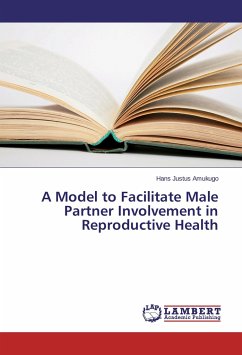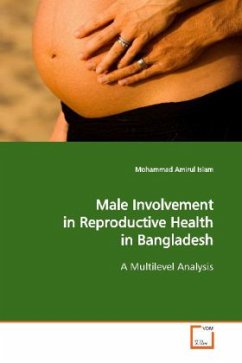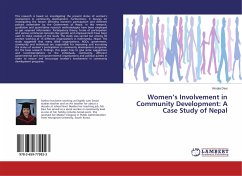
Male involvement in family planning in Ghana
Assessment of Male Involvement in Family Planning in the Upper West Region
Versandkostenfrei!
Versandfertig in 6-10 Tagen
36,99 €
inkl. MwSt.

PAYBACK Punkte
18 °P sammeln!
The study determined male involvement, acceptance and practice of family planning (FP), using cross-sectional study design (qualitative and quantitative); multiple sampling methods (simple random, systematic and purposive); Questionnaires and FGD to collect primary data, with a sample size of (300). The study population included health institutions, heads of households and opinion leaders. The study revealed that male knowledge (87%) and awareness (90%) of FP was very high; Appreciable male involvement (57.53%); Minimal male support to their spouses (43.95%); Men have positive attitude for FP ...
The study determined male involvement, acceptance and practice of family planning (FP), using cross-sectional study design (qualitative and quantitative); multiple sampling methods (simple random, systematic and purposive); Questionnaires and FGD to collect primary data, with a sample size of (300). The study population included health institutions, heads of households and opinion leaders. The study revealed that male knowledge (87%) and awareness (90%) of FP was very high; Appreciable male involvement (57.53%); Minimal male support to their spouses (43.95%); Men have positive attitude for FP (88.18%), but inadequate knowledge on FP (42.95%); Factors such as, inadequate knowledge on FP, value for children (boy child), poor spousal communication, and the influence of mother -in-laws were also identified as discouraging male involvement; About 12% of men were also afraid of using modern contraceptives due to its side effects. Natural FP methods should be included in the FP indicators and educators redefine the method in the local languages to be more specific (ideal family size); develop effective multi-media communications and Social marketing strategies to motivate men etc.












